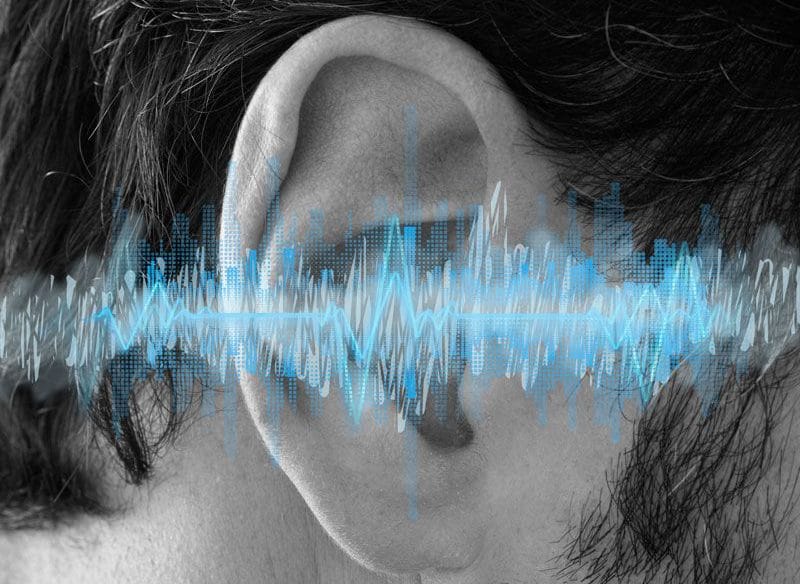Do you experience a ringing in your ears? If so, you are not alone. Tinnitus affects an estimated 50 million Americans—about 20 percent of the population. It can range from a mild annoyance to a full-fledged problem that severely impacts your quality of life.

There is no universal cure for tinnitus, but there are treatments that make it less of a distraction. Because tinnitus is a side effect of an underlying condition, identifying the problem may lead to a medical or surgical solution.
Unfortunately, in many cases the exact cause of tinnitus can’t be identified, or treatment is not possible. However, symptoms can often be managed successfully through a number of different strategies.
Hearing Aids
Hearing loss causes maladaptive neuroplastic changes in the brain. Hearing aids are used to stimulate the auditory pathways received by the brain. Background sounds can mask tinnitus. Hearing aids can also help the patient better distinguish one sound from another, improving communication and helping with focus and concentration difficulties. Many devices also come packaged with noise generators to replace ambient sounds if amplification alone does not reduce tinnitus.
Sound Generators
Nighttime can be one of the most difficult times for those with tinnitus symptoms. Sound generators can help create more pleasant background noises and reduce the emotional impact of tinnitus, allowing users greater relaxation and better sleep. Some sound generators can be worn as wearable devices while others are available in non-wearable versions for use around the home.
Steroid Injections
Meniere’s disease (also known as endolympatic hydrops) has a triad of symptoms (hearing loss, tinnitus, vertigo) that fluctuate due to increased fluid pressures in the ear organs. Fluctuation of hearing and resulting tinnitus can be treated with a series of injections of Dexamethasone (a potent steroid) with an 85 percent chance of reduction in tinnitussymptoms.
Surgery
If you have an acoustic neuroma and suffer from tinnitus, the tinnitus may be resolved through a surgical removal of the acoustic neuroma. In a 1981 research study of more than 400 patients, 45 percent improved their tinnitus with the surgical removal of the acoustic neuroma.
Call ENT Specialists Of Northern Virginia at (703) 644-7800 for more information or to schedule an appointment.